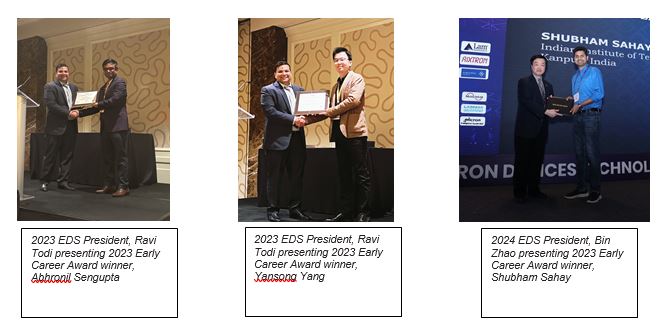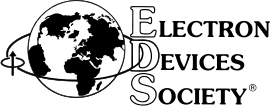Early Career Award

Congratulations to the 2023 IEEE EDS Early Career Award Winners!
Abhronil Sengupta, The Pennsylvania State University, USA
Shubham Sahay, Indian Institute of Technology (IIT) Kanpur, India
Yansong Yang, Hong Kong University of Science and Technology, Hong Kong
Sponsor: IEEE Electron Devices Society
Scope: To promote, recognize, and support early career technical development within the Electron Devices Society's field of interest
Eligibility: Up to 3 nominees can be selected each year. Nominees are required to be IEEE EDS members. Nominees must have received their first professional degree within the tenth year defined by the August 15 nomination deadline. Nominators are required to be IEEE EDS members. Previous recipients of this award are ineligible. Self-nominations are not accepted or considered. Members of the EDS Awards Committee and voting members of the Early Career Award Committee are not permitted to submit or endorse nominations.
Prize: The award consists of a plaque and $1,000
Basis for judging: The basis for judging includes such factors as; the demonstration of field leadership in a specific area; specific technical contribution(s); impact on the profession or economy; originality; breadth; inventive value; publications; honors; and other appropriate achievements.
Early Career Award Committee: Committee
Nomination deadline: 15 August
Nomination form: https://ieeeforms.wufoo.com/forms/k3ttt6a19lkyis/
Carry Over Nominations: Candidates will not be automatically considered the next year
Presentation: Presented at the EDS Awards Dinner, which is held in conjunction with the IEEE International Electron Devices Meeting (IEDM).
Past Award Winners: Winners







